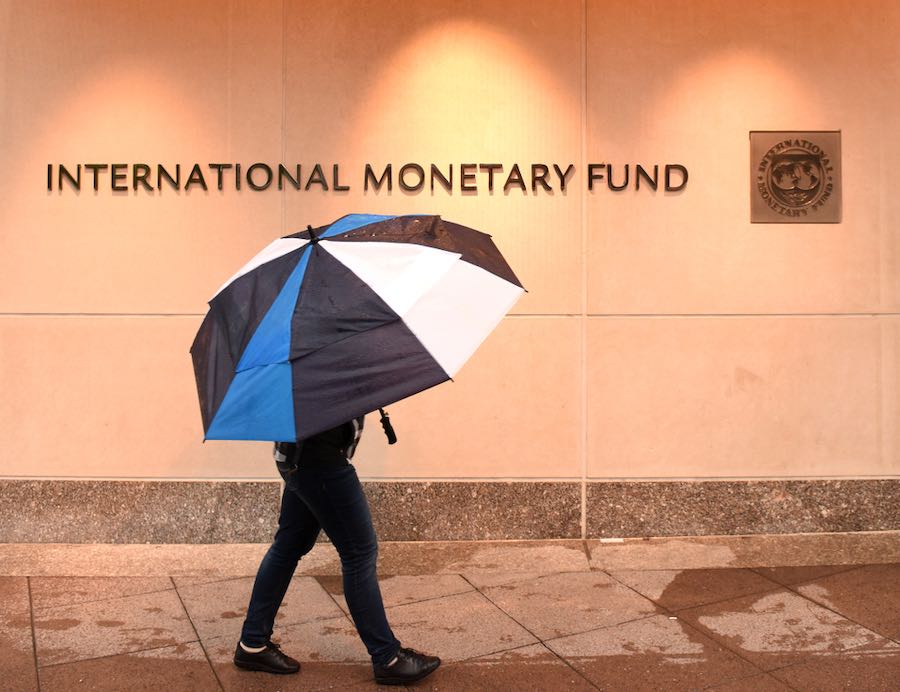The growth forecast for China and the eurozone was revised downwards by the International Monetary Fund (IMF), which also highlighted that global growth remained low and uneven. Despite acknowledging the ‘remarkable strength’ of the U.S. economy, the IMF stated that overall global growth remained sluggish.
Read more: Annual meetings of the IMF, World Bank kick off today
In its most recent assessment of the global economy, the IMF maintained its projection for global real GDP growth at three percent for 2023. However, it revised its forecast for 2024 downwards to 2.9 percent from the previous three percent estimated in July. Global output experienced a growth of 3.5 percent in 2022.
According to IMF Chief Economist Pierre-Olivier Gourinchas, the global economy is still in the process of recovering from the impacts of COVID-19, the Russian-Ukrainian war, and the energy crisis of the previous year. However, due to varying growth patterns, the prospects for the medium term are described as ‘modest.’
Gourinchas highlighted that the overall outlook indicated a relatively acceptable deceleration in growth when compared to inflation and unemployment. However, the IMF expressed ongoing concerns regarding various risks such as China’s real estate crisis, volatile commodity prices, fragmentation, and a resurgence of inflation.
Different scenarios
Gourinchas told Reuters, ‘Depending how the situation might unfold, there are many very different scenarios that we have not even yet started to explore, so we can’t make any assessment at this point yet.
He said the IMF was monitoring the situation, noting that oil prices had risen some 4 percent in recent days, reflecting concerns that production or transport of oil could be interrupted.
Research by the IMF showed a 10 percent increase in oil prices would dampen global output by about 0.2 percent in the following year and boost global inflation by about 0.4 percent, he said.
Several factors
The International Monetary Fund (IMF) highlighted that several factors, including the lingering effects of the pandemic, the conflict in Ukraine, increasing fragmentation, higher interest rates, extreme weather events, and reduced financial support, are impeding stronger economic growth.
Total global output in 2023 is slated to be 3.4 percent, or roughly $3.6 trillion – below pre-pandemic projections.
Resilience
“The global economy is showing resilience. It’s not knocked out by the big shocks it’s experienced in the last two or three years, but it’s not doing too great either,” Gourinchas said in an interview. “We see a global economy that is limping along and it’s not quite sprinting yet.”

Darker outlook
The medium-term outlook was “darker” especially for emerging economies, which faced a slower catch-up in living standards and more debt worries, Gourinchas told a news conference.
Even in 2028, the IMF is projecting global growth of just 3.1%.
“You have uncertainty. You have geo-economic fragmentation, low productivity growth, and low demographics. You put all these things together and you have a slowdown in medium-term growth,” Gourinchas told Reuters.
For more news on the economy, click here.








